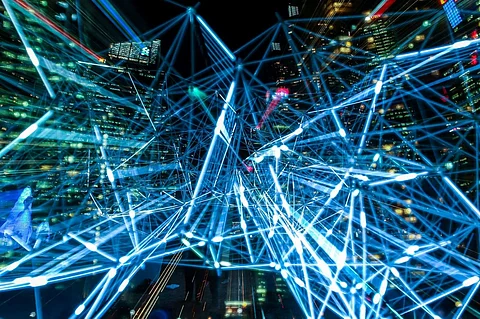

Artificial intelligence (AI) is increasingly playing significant roles in several industries. Despite being in its infancy, AI has already revolutionized many sectors, including healthcare, manufacturing, and financial trading is not exempted. Financial traders use AI-powered algorithms to analyze market data, identify trends, and make trading decisions more quickly, changing the financial trading game.
Implementing AI has helped traders trade more efficiently. And understanding how AI is transforming the trading industry will give traders more insights into becoming more productive, bearing little or no costs. Whether you are a new or existing trader, artificial intelligence can help you become better in the following ways.
Improved Predictive Analytics
Traders often need predictive analytics to help their decision-making over time, and AI can help streamline their analysis by using automated algorithms to work on data from other sources. Consider a US trader who needs information about upcoming data releases and events that may affect the economy. He may rely on data like the Mortgage Market Index, Balance of Trade, and Inflation rate from the US economic calendar and trust AI to get and treat the data effectively, especially when they are bulky. The economic calendar is a real-time resource that covers financial events and indicators and helps traders keep up-to-date with future financial changes or activities.
AI-powered predictive analytics algorithms can access and analyze this data faster and provide more accurate results. While traders may achieve the same without AI, they will save more time and resources using the technology. The algorithms use machine learning to analyze data like past market trends and current events, identify patterns, and predict future market movements. As a result, traders can make important decisions quickly and with more accuracy.
In addition to helping traders improve their predictive analytics, AI provides a trading strategy called algorithmic trading. Algorithmic trading, also known as automated trading, black-box trading, or algo-trading, is a trading method that uses pre-programmed algorithms or instructions to make trading decisions based on market data. This automated trading system can leverage computer speed to consider multiple trading factors, such as market trends, news events, and economic data, to make quick and informed trading decisions.
Traders can leverage algorithmic trading for different trading strategies and investment activities, including Index Fund Rebalancing, Arbitrage Opportunities, High-frequency Trading, etc. The speed and accuracy of these algorithms can provide several advantages to traders, including low latency, trade execution at the best possible prices, low transaction costs, regular checks on multiple market conditions, backtesting, and reduced human errors.
Crisis Management is an essential aspect of trading that involves identifying and responding to threats against trading activities to minimize financial risks. AI-powered risk management systems can help analyze market data in real time, identify potential risks before they materialize, and implement strategies to reduce costs.
These risk management systems use machine learning to identify patterns and trends that may indicate an increased risk of loss and are less dependent on human efforts to produce accurate results. Therefore, traders can rely on AI to make crisis management more effective and increase trade profits.
Like in several other industries, Artificial Intelligence is increasingly transforming financial trading. Its most obvious impact on the financial market is that it helps traders make more informed decisions and act faster.
Join our WhatsApp Channel to get the latest news, exclusives and videos on WhatsApp
_____________
Disclaimer: Analytics Insight does not provide financial advice or guidance. Also note that the cryptocurrencies mentioned/listed on the website could potentially be scams, i.e. designed to induce you to invest financial resources that may be lost forever and not be recoverable once investments are made. You are responsible for conducting your own research (DYOR) before making any investments. Read more here.
